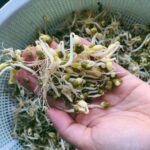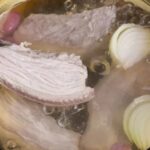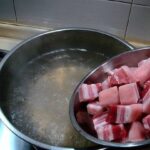The success of a chicken dish heavily relies on the chicken selection process. If you’re not careful and end up with a subpar or stale bird, even the most skillful cooking techniques won’t be able to save it. Memorize these simple tips for choosing tasty and beautiful chicken, which anyone can master.
Tips for Choosing a Delicious and Beautiful Live Chicken
When selecting a live chicken, the first thing to keep in mind is to buy from reputable sources that guarantee food safety and hygiene. If you’re buying from a market, opt for clean and hygienic shops. Additionally, pay attention to the following characteristics:
+ Observe the External Shape
A healthy chicken will have a well-proportioned body, neither too skinny nor too fat. Its feathers should be shiny and smooth, with no signs of illness such as feather loss, bruising, or wounds.
Also, take note of the chicken’s eyes. A healthy bird will have clear and bright eyes, free from pus or signs of infection.
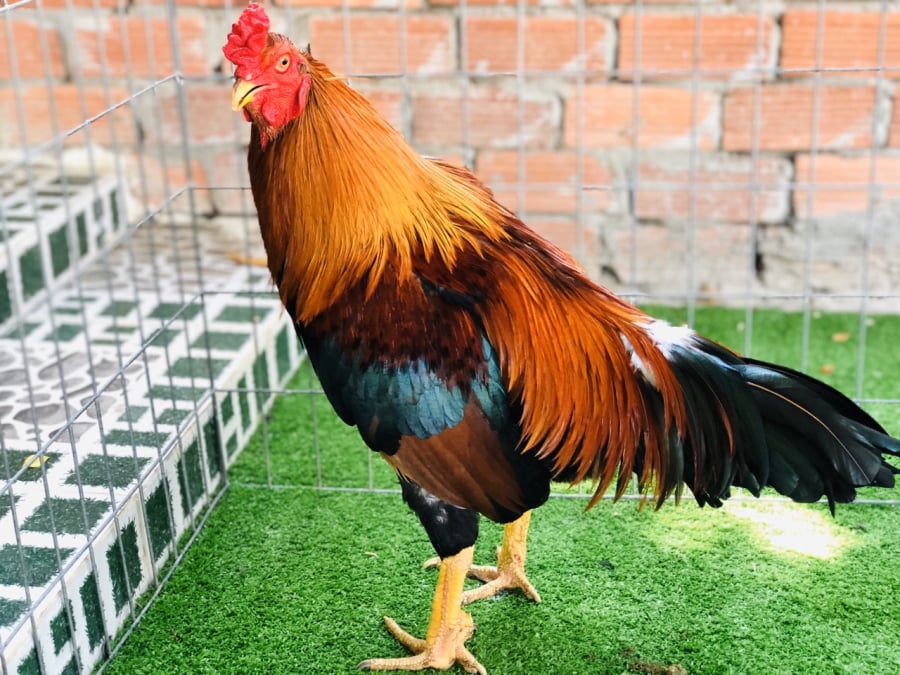
+ Check the Legs
The legs can also reveal a lot about the chicken’s health. A healthy chicken will have straight legs with intact skin, free from scratches, swelling, or pus. If the legs show signs of injury, bruising, or infection, it’s best to avoid purchasing that bird as it may be sick.
+ Inspect the Beak and Comb
Another tip practiced by many is to examine the beak and comb, which are indicative of the chicken’s overall health. A healthy chicken will have an intact beak and a bright red, smooth comb. If the comb appears pale or the beak is chipped or wounded, it’s best to choose another bird.
+ Examine the Abdomen
The abdomen is another crucial factor in assessing the chicken’s quality. Gently press on the chicken’s abdomen to get a sense of its condition. A healthy chicken will have a soft abdomen that isn’t bloated or stiff. If the abdomen feels tense or emits a foul odor, it’s a sign that the chicken may be diseased, so it’s best to avoid purchasing it.
Secrets to Choosing a Pre-cooked Chicken
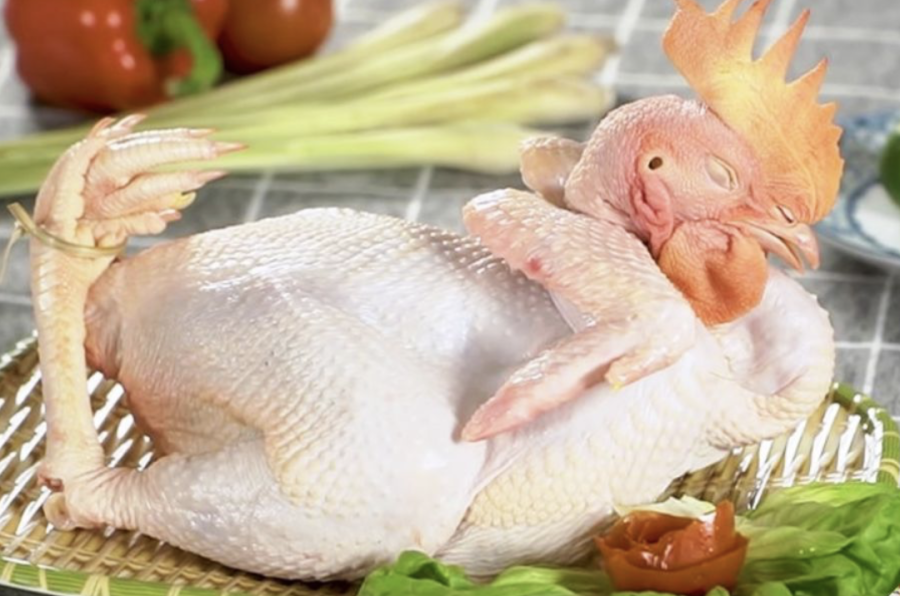
When buying pre-cooked chicken, consider the following factors:
+ Color
Fresh chicken meat is usually bright pink, not pale or dark. If the meat is dark red, discolored, or shows signs of decay, do not buy it.
Also, pay attention to the storage conditions. Chicken meat can change color if it’s been stored for too long, whether in the fridge or left out in the open.
+ Observe the Meat’s Surface
Fresh chicken meat should have a dry surface, free from slime or any foreign substances. If you notice a slimy layer or sticky substance on the meat, it’s likely that the chicken has gone bad or hasn’t been stored properly. Additionally, when cutting the meat, clear red juice indicates freshness, while cloudy or foul-smelling juice suggests spoilage.
+ Smell
Scent is another critical factor in determining the quality of chicken meat. Fresh chicken will have a natural, pleasant aroma. If the meat smells sour, rotten, or odd in any way, it’s likely spoiled or hasn’t been stored properly.
The Ultimate Guide to Perfectly Boiled Meat: Unveiling the Secret to Purification and Enrichment
Boiling meat is a common practice among households to ensure it is clean and safe for consumption. However, this method is not always effective, and if not done properly, can do more harm than good. Improper handling and preparation of meat can lead to the absorption of harmful chemicals and contaminants, defeating the initial purpose of boiling.
“The Ultimate Guide to Beetroot Pork Blood Soup: A Delicious, Healthy, and Skin-Glowing Treat”
Introducing a delicious and healthy twist on a traditional favorite – say goodbye to your worries about food hygiene and hello to a mouthwatering treat. We’re spilling the beans on how to make a mouth-watering twist on the classic Vietnamese dish, using beetroot as a star ingredient. This recipe is not only a tasty treat but also a beauty boost for your skin.
The Perfect Pork: How to Boil Meat Without the Toxins.
“Washing raw meat is a controversial practice. When hot water is applied to unwashed meat, the outer layers of muscle fibers contract, trapping any impurities within. This results in a potentially harmful absorption of contaminants back into the meat. Therefore, it is always advisable to thoroughly clean meat prior to cooking to ensure the meat’s surface doesn’t reabsorb any unwanted elements.”
























